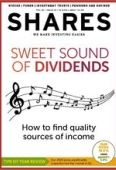Archived article
Please note that tax, investment, pension and ISA rules can change and the information and any views contained in this article may now be inaccurate.
Space investing comes crashing back down to earth after Virgin Orbit bankruptcy

Satellite firm Virgin Orbit’s (VORB:NASDAQ) filing to the SEC on the day it announced it was entering Chapter 11 bankruptcy protection laid bare the mountain the company had been trying to scale.
The company expected revenues for 2022 to be in the region of $30 million but overall Virgin Orbit expected to post a loss more than six times that figure.
Space is an expensive business; in the past the huge costs meant it was the provision of just governmental organisations, but the potential of large profits has drawn in some of the world’s richest investors.
But those investors need to have very deep pockets and an endless supply of patience.
On paper Virgin Orbit’s business model makes sense. Space data analysts Euroconsult expect that by 2030 there will be around 1,700 satellites needing a piggyback to orbit every year as increasingly our lives rely on technology. Virgin’s USP was flexibility, but by the time of its IPO in December 2021 risk appetite was already beginning to wane and the window of opportunity was starting to close.
January’s failed UK launch undoubtedly hammered another nail into Virgin Orbit’s prospects but the company was already coming under increasing pressure from Elon Musk’s SpaceX. After smashing the record for the number of satellites launched on one rocket in 2021, the latter hit new highs in 2022 with a record number of orbital launches.
THE SPACEX FACTOR
With scale comes an ability to cut costs and the company’s ride-share option now starts at as little as $275,000. SpaceX is a dominant force and Musk has shown little inclination for taking it public, saying its long-term goals are not in line with the short-term demands of the being a public company listed on the stock market.
Whether it is profitable or not is impossible to pinpoint but Tesla (TSLA:NASDAQ) has proved that Musk is magnate for retail investors and institutional investors alike. SpaceX is undoubtedly the best-known name in the space game, but in the absence of a pending IPO there are limited ways for retail investors to buy in right now, bar Virgin Orbit’s sister company, space tourism outfit Virgin Galactic (SPCE:NYSE) whose own shares are down more than 60% over the last 12 months.
There is a lot of risk involved in space investments so most should be treated as an investment moon-shot; small, speculative additions to a diverse portfolio but being part of that one small step will be alluring, especially with NASA working on plans to take people back to the moon.
LIMITED OPTIONS FOR INVESTORS
Euroconsult recently published the ninth edition of its annual space market overview. This estimated the global space economy was worth $424 billion in 2022 – implying annual growth of 8% which is significant by any standards.
For those put off by the big money being lost by players like Virgin Orbit an investment trust like Seraphim Space (SSIT) provides the option to invest in a whole galaxy of smaller companies, though the risk profile is still elevated and is reflected in the shares trading on a 61% discount to net asset value according to data from the Association of Investment Companies.
The portfolio reads a bit like a Star Trek script with fantastic names like ICEYE, Constellr and D-Orbit. All promise a riff on the same theme – ground-breaking, next generation technology for tomorrow’s world.
OTHER PARTICIPANTS
For more cautious investors, some existing defence stocks like BAE Systems (BA.) could provide exposure to the space race in a more traditional way. The company announced it will launch its first multi sensor satellite cluster into low earth orbit in 2024 which will provide military customers with ‘information and intelligence’.
BAE Systems snapped up In-Space Missions in 2021 and is working on integrating that into its extensive operations and by doing so it could become a key building block of those UK space ambitions that were so rudely crushed by Virgin Orbit’s failed Cornwall launch in January.
By chance one of the biggest companies in Seraphim’s portfolio, ICEYE is working with BAE on its Azalea project.
This is tomorrow’s world, but we know how quickly tomorrow’s technology becomes ingrained today.
Some analysts have pointed out that the space sector is looking an awful lot like the commercial air travel sector after World War II – poised for massive growth. However, it is still unclear who the winners will be and when investors will start to see any meaningful returns.
Important information:
These articles are provided by Shares magazine which is published by AJ Bell Media, a part of AJ Bell. Shares is not written by AJ Bell.
Shares is provided for your general information and use and is not a personal recommendation to invest. It is not intended to be relied upon by you in making or not making any investment decisions. The investments referred to in these articles will not be suitable for all investors. If in doubt please seek appropriate independent financial advice.
Investors acting on the information in these articles do so at their own risk and AJ Bell Media and its staff do not accept liability for losses suffered by investors as a result of their investment decisions.
Issue contents
Book reviews
Editor's View
Feature
Great Ideas
- Buy Empiric at a big discount to the other main player in student property
- Laboratory owner offers a cheap way into a growing specialist market
- Brunner: a great way to invest in stocks around the world on the cheap
- Rathbones raises its sights with £100 billion Investec wealth deal
- Our top picks for 2023 have made a superb start to the year
 magazine
magazine








